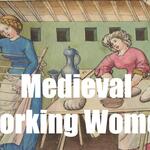A seemingly simple fairy tale can be pretty controversial: https://discover.hubpage...
掰噗~
wonders
真假!? 
Fascinating! Thank you!
Interesting analysis!

I kinda disagree with one part: "when a new class of bourgeoisie was formed and more and more women were starting earning money." This is a retelling of history that is not based on actual facts. From almost all ages, women of almost all social standing were working. Of course, some men of the nobility had enough money so the women didn't have to work,
but many girls and women from poor nobility (yes, those existes) worked. From teachers for children of wealthier families (or the branch of the family with all the money), to the « dames de compagnies », and everything in between, they brought in the bread when the man was "insufficient".
But lower classes? Many wives of the new bourgeoisie worked as seamstresses, or helped at the business of their fathers, or husbands, or even outside the house. And of course, poor women worked on the farm, as maids, ace makers, weavers, milliners, and all the other jobs that need to be done. And it has always been so.
But Victorian era saw lots of those facts re-written by (white) men to impose a closer grip on their women, just like it was rewritten again in the '50s when men coming back from war needed their jobs back, and told women their place was in the home, not in factories.
In that way, Perrault and the Grim brothers, if truly they influenced the stories they were retelling, would have been part of that new narrative telling women to be obedient to those in power (parents, husbands) if they didn't want to be eaten alive by merciless men.
(Ah! "Ladies in waiting" would be the English version of "dames de compagnies". My brain was slow.)
A rather grim tale...
StereoNacht: Perrault wrote his book of fairy tales as a joke. His Red Riding Hood is a cautionary tale - girls beware of older men (ironically, he married more than two decades younger girl), Grimms wrote (and rewrote) their collection as some kind of set of new rules in new society: girls should still listen their mothers.
StereoNacht: Yes, they were working, but they didn't earn money. They (and most of men) worked for food and bed. Only money (or similar possesion) gave them actual power.
Many of them did work for money, especially the lower classes. They sent most of their money to their family, and it was often a pittance, but they did get paid beyond food, housing and cleaning. In the Middle Ages, quite a few women owned business... But that doesn't get talked about much; it goes against the narrative of conservative men.
Here is an overview of Victorian-era women's work, and why it was often forgotten by (male) historians: BBC - History - Women's Work
And working women in late medieval times: Medieval Working Women: Their role in the trades of ...Seriously, it's one of the women studies area of research. Basically: we have been lied to, for centuries.
Medieval Working Women: Their role in the trades of ...Seriously, it's one of the women studies area of research. Basically: we have been lied to, for centuries.
 Medieval Working Women: Their role in the trades of ...Seriously, it's one of the women studies area of research. Basically: we have been lied to, for centuries.
Medieval Working Women: Their role in the trades of ...Seriously, it's one of the women studies area of research. Basically: we have been lied to, for centuries.
Woh , this is interesting ~although grimm some parts are related to real world opninion s, even some of them still live ..a grirl in sexy dress " own blame "when something wrong happens ..thinking..which is wrong.
and thx conversation ~